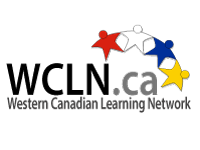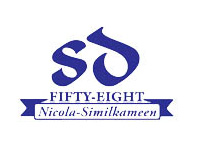The following courses are currently open for enrollment. Please note that more courses are in development, so keep an eye out! Also, please note that all of the following courses are university-recognized credits.
Athletic Leadership
Athletic Leadership courses are designed to explore recreational opportunities primarily off campus and outdoors which may include, but is not limited to, hiking, disc golfing, golfing, biking, skating, curling, skiing, snowboarding, snowshoeing, pickle-ball, tennis, bowling, swimming, archery, fishing, canoeing, and kayaking. Students will log a minimum of 60 hours participating in a variety of activity types. Course theory will be comprised of direct instruction, experiential learning, and participation in training and certification in leadership positions within the athletic community such as refereeing, umpiring, standard first aid, CPR, coaching etc. Athletic role models will be featured, with an emphasis on indigenous athletes and their contributions to the sport and athletic community. Learners will practice skills by assisting with advertising, organizing, structuring, and implementing athletic events in the school and/or community and will serve for a minimum of 30 hours in a leadership role (sports official, team captain, coach, first aid attendant, athletic event personnel, youth activities coordinator, powwow participant etc.).
High-Performance Athlete 11
HPA 11 is designed specifically for athletes across the diverse fields of athletic competition to gain credit for their athletic-specific training and competition while also providing them with specific learning related to athletic performance. Learners will set specific, measurable, and attainable goals related to both training and performance, demonstrate their engagement in training and competition, and reflect on their progress. This reflective and holistic approach to training and competing aims to demonstrate how intentional practice and deep consideration of performance facilitate both athletic and personal growth. Additionally, learners will explore the principles of high performance in athletics by engaging with content on athlete physiology, sports nutrition, sports psychology, and sport-specific training to deepen their understanding of how contemporary athletes achieve success. Whether you are a high-performance athlete right now, have your sights set on high performance, or are competing in sports and are interested in the principles of high performance, whether you are a beginner, advanced, or anywhere in between, this course is designed for you! Learners in this course are required to engage in an athletic field of some kind while completing the content, as 60% of the course is specifically allocated for credit related to training and competition.
If you are interested in enrolling for this course, please reach out to Mr. Corey Hermiston: This email address is being protected from spambots. You need JavaScript enabled to view it.
High-Performance Athlete 12
Like High-Performance Athlete 11, HPA 12 is designed specifically for athletes across the diverse fields of athletic competition to gain credit for their athletic-specific training and competition while also providing them with specific learning related to athletic performance. Learners will set specific, measurable, and attainable goals related to both training and performance, demonstrate their engagement in training and competition, and reflect on their progress. This reflective and holistic approach to training and competing aims to demonstrate how intentional practice and deep consideration of performance facilitate both athletic and personal growth. Additionally, learners will explore the principles of high performance in athletics by engaging with content on injury prevention and recovery, mental health awareness and resiliency, as well as consider social and ethical issues in contemporary athletics (like the use, and specifically the dangers, of performance-enhancing drugs and painkillers). Learners will also explore career paths related to their specific field, including paths related to competition and post-competition. As in HPA 11, this content is designed to deepen learner understanding of how contemporary athletes achieve success. Whether you are a high-performance athlete right now, have your sights set on high performance, or are competing in sports and are interested in the principles of high performance, whether you are a beginner, advanced, or anywhere in between, this course is designed for you!
Learners in this course are required to engage in an athletic field of some kind while completing the content, as 60% of the course is specifically allocated for credit related to training and competition.
If you are interested in enrolling for this course, please reach out to Mr. Corey Hermiston: This email address is being protected from spambots. You need JavaScript enabled to view it.
Hockey Academy 10
HA 10 is designed specifically for hockey players to gain credit for their sport-specific training and competition while also providing them with specific learning related to performance and the world of hockey. Learners will set specific, measurable, and attainable goals related to both training and performance, demonstrate their engagement in training and competition, and reflect on their progress. This reflective and holistic approach to training and competing aims to demonstrate how intentional practice and deep consideration of performance facilitate both athletic and personal growth. Additionally, learners will explore hockey’s history and consider how the game has advanced both athletically and socially, as well as engage with principles related to stats and analytics, mental health and resiliency, and the factors that make hockey teams successful. Whether you are a hockey player competing at the junior, academy, or club level, male or female, whether you are a beginner, advanced, or anywhere in between, this course is designed for you!
Learners in this course are required to be engaged with hockey training and competition of some kind while completing the content, as 60% of the course is specifically allocated for credit related to training and competition.
If you are interested in enrolling for this course, please reach out to Mr. Corey Hermiston: This email address is being protected from spambots. You need JavaScript enabled to view it.
Hockey Academy 11
Like Hockey Academy 10, HA 11 is designed specifically for hockey players to gain credit for their sport-specific training and competition while also providing them with specific learning related to performance and the world of hockey. Learners will set specific, measurable, and attainable goals related to both training and performance, demonstrate their engagement in training and competition, and reflect on their progress. This reflective and holistic approach to training and competing aims to demonstrate how intentional practice and deep consideration of performance facilitate both athletic and personal growth. Additionally, learners will continue to explore hockey’s history and consider how the game has advanced both athletically and socially, as well as engage with principles related to hockey systems and respect in the game. Learners will also examine case studies of prominent hockey players as they detail their experience with mental health while playing hockey and consider how best to apply strategies related to positive mental health maintenance. Whether you are a hockey player competing at the junior, academy, or club level, male or female, whether you are a beginner, advanced, or anywhere in between, this course is designed for you!
Learners in this course are required to be engaged with hockey training and competition of some kind while completing the content, as 60% of the course is specifically allocated for credit related to training and competition.
If you are interested in enrolling for this course, please reach out to Mr. Corey Hermiston: This email address is being protected from spambots. You need JavaScript enabled to view it.
Hockey Academy 12
Like Hockey Academy’s 10 and 11, HA 12 is designed specifically for hockey players to gain credit for their sport-specific training and competition while also providing them with specific learning related to performance and the world of hockey. Learners will set specific, measurable, and attainable goals related to both training and performance, demonstrate their engagement in training and competition, and reflect on their progress. This reflective and holistic approach to training and competing aims to demonstrate how intentional practice and deep consideration of performance facilitate both athletic and personal growth. Additionally, learners will examine the principles of effective coaching, consider the impact of media in the game, explore hockey’s intentional move toward diversity and inclusion, and continue to consider the importance of mental health maintenance and resiliency. Whether you are a hockey player competing at the junior, academy, or club level, male or female, whether you are a beginner, advanced, or anywhere in between, this course is designed for you!
Learners in this course are required to be engaged with hockey training and competition of some kind while completing the content, as 60% of the course is specifically allocated for credit related to training and competition.
If you are interested in enrolling for this course, please reach out to Mr. Corey Hermiston: This email address is being protected from spambots. You need JavaScript enabled to view it.
Fitness and Conditioning 11 and 12
Fitness and Conditioning 11 and 12 are designed to provide students with a comprehensive understanding of fitness, exercise physiology, and conditioning techniques. The two courses are aligned with the British Columbia curriculum and aim to empower students to make informed decisions about their personal fitness and well-being. Through a combination of theoretical knowledge, practical exercises, and critical thinking, students will develop the skills necessary to lead a healthy and active lifestyle. The course goals and objectives include gaining an understanding of exercise physiology, assessing fitness levels, designing effective workouts, conditioning techniques, nutrition and recovery, injury prevention and safety, as well as social and psychological aspects of fitness.



